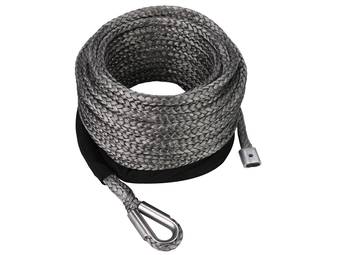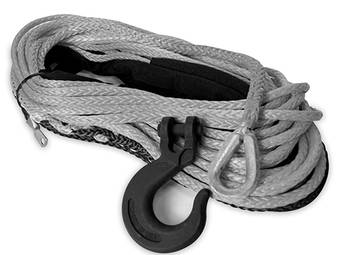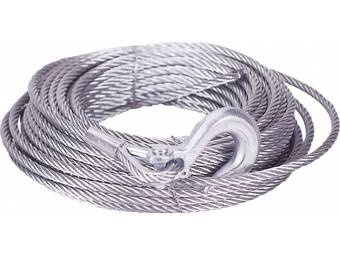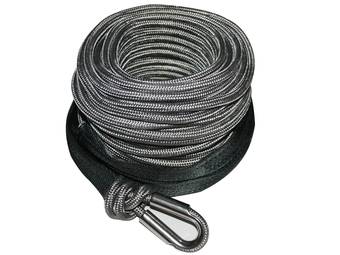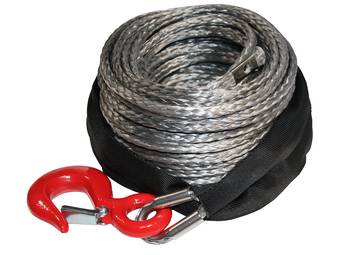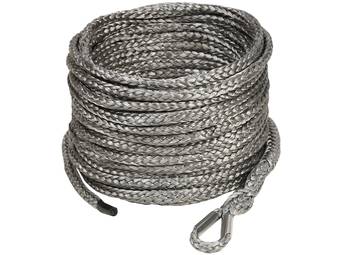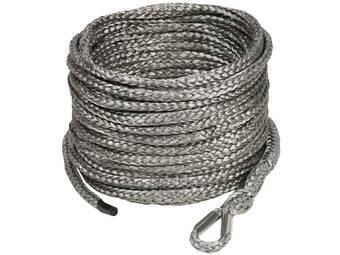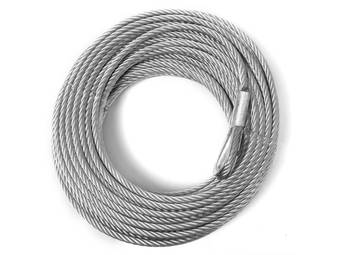Free Shipping on Orders Over $100
Jaguar F-Pace Winch Cables & Synthetic Winch Rope
Only display items that ship the quickest
Winch Cable & Rope Replacements
A winch is an integral addition to any dedicated wheeler, easing solo recoveries and allowing you to tow other stranded or broken-down vehicles off the trail. However, winches won’t last forever without regular maintenance, like replacing an aging steel cable or synthetic winch rope!
After years of use, abuse, and exposure to the elements, winch lines can deteriorate, taking strength and safety with them. With alloy cables, you may experience frayed wire or corrosion, which can sacrifice the cable’s structural integrity. Additionally, a frayed cable can cause serious damage to your recovery gloves, or, worse yet, ungloved hands.
On the other hand, synthetic winch lines can deteriorate after years of exposure to the elements or unprotected abrasions, like winching around a tree without a tree saver or snatch block. In either case, a replacement is warranted to ensure safe, reliable recovery, and RealTruck has all the products to do so!
Selecting a Winch Cable or Rope
There are several winch cables and ropes on the market, but which is right for your setup? Let’s check out some of the key considerations when choosing your perfect winch line.
Construction: Alloy Vs. Synthetic
There are two main winch line constructions on the market–braided steel and synthetic rope–each offering benefits over the other.
Braided steel cable is incredibly durable; this material is extremely difficult to break or fray, making for a long-lasting and reliable recovery line. Steel cable is also relatively rigid, keeping your winch lead straight and true during conventional pulls. Unfortunately, the lack of flexibility may hinder the steel cable in some trickier recoveries with numerous bends and twists. Steel cable also has a lower tensile strength than synthetic rope, believe it or not. It’s also prone to rusting, which may lead to sharp burs and corrosion.
Synthetic rope, typically constructed of woven polyethylene, offers a great blend of strength and safety. Unlike steel cable, which carries significant kinetic energy that can seriously injure yourself or other wheelers in the event of a break, synthetic rope is incredibly lightweight. It also carries a higher break strength than steel, making it more reliable on the trail.
However, that’s not to say synthetic ropes are without flaws. These lines are far more susceptible to UV exposure, chemicals, heat, and abrasion, which can cause significant wear and tear, weakening the rope.
End Design: Hook Vs. Loop
Winch ropes come in several end designs, including permanent hooks or loops. While both have their place, some prefer a dedicated hook, while others prefer the loop end, which accepts various hooks and fasteners. In the end, it all comes down to preference.
Capacity
When selecting your winch line, you’ll need a product with a capacity that’s higher than your vehicle’s wet weight; that includes passengers, gear, camping supplies, tools, excess fuel, and more. As a rule of thumb, you should always select a line with a working load limit that’s above your vehicle’s maximum weight and a breaking strength that's at least 1.5 to 2 times that of your winch’s maximum capacity.
For more information on these values, check out our RealSource article on Breaking Strength Vs. Working Load Limit.
